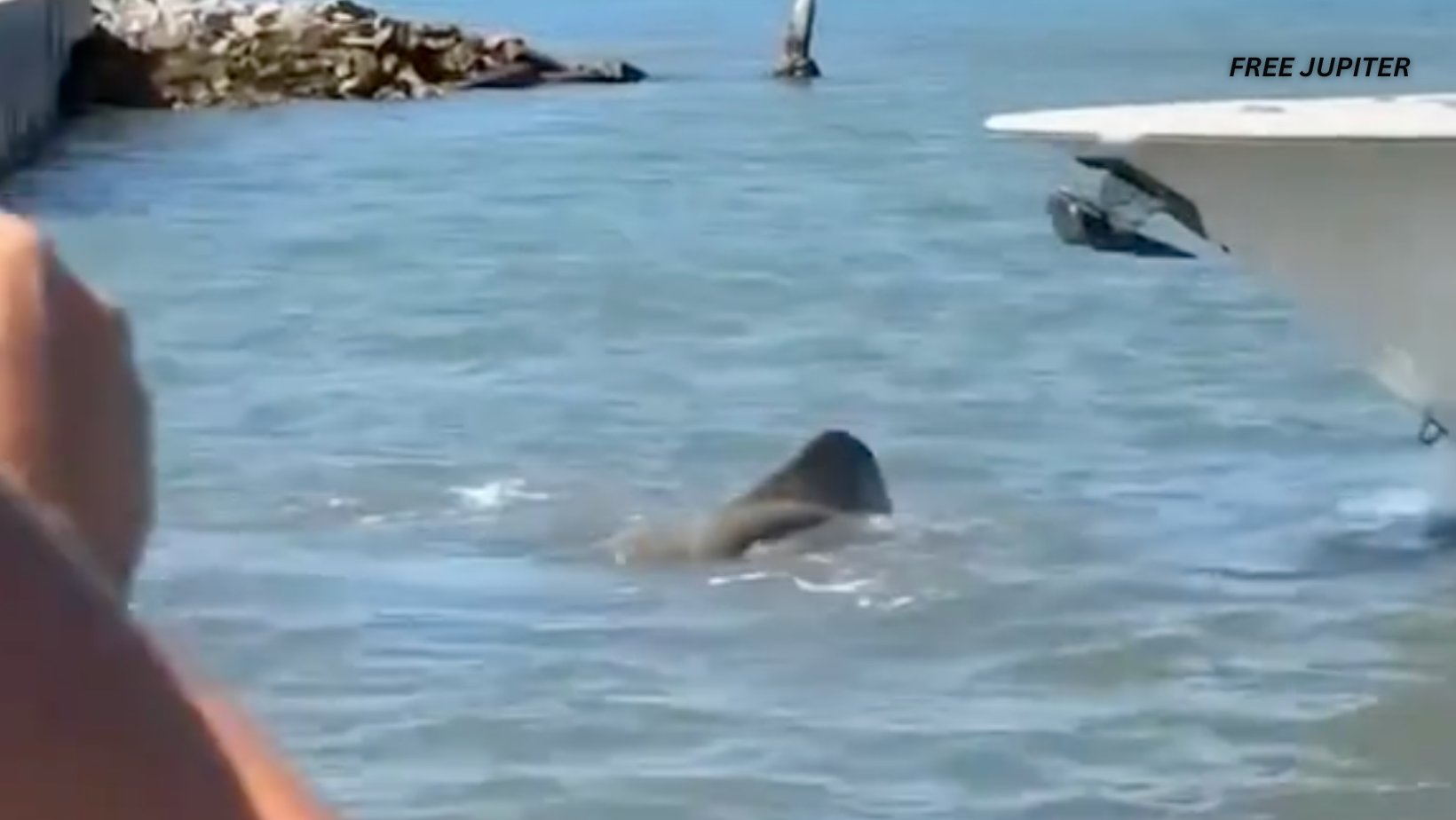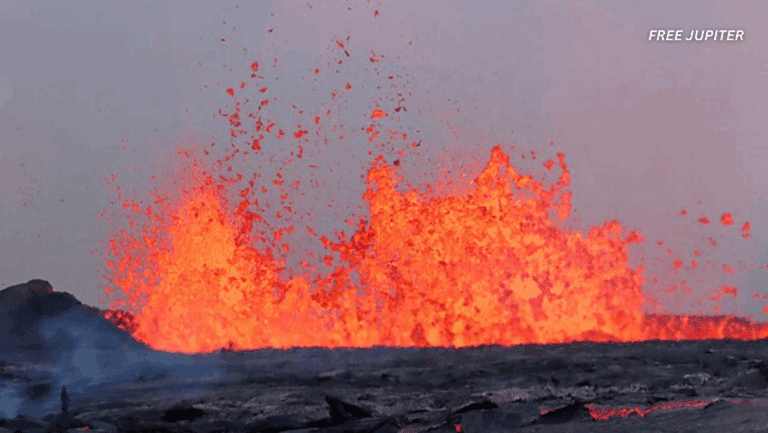A leisurely day on the water near Clearwater, Florida, took an unsettling twist for one family, who found themselves witnessing a scene that left them both stunned and frustrated. As they floated near the Seminole Boat Ramp, the group’s peaceful observation of manatees was abruptly interrupted by a boater who appeared to disregard the presence of the gentle aquatic mammals entirely, steering directly through their midst at speed.
An Unexpected Encounter on the Water
The family, equipped with smartphones to capture the manatees gliding just beneath the surface, quickly shifted from admiration to alarm. As another vessel approached, they realized the boat was not slowing down, despite the visible presence of the animals. The family began to shout and wave, hoping to alert the driver to the manatees’ location.
Rylie Wake, who was on board with her relatives, later recounted the tense moments. “We were yelling, pointing, waving-trying everything to get his attention,” she said. The boater’s response, as caught on their recording, was a casual, “They’ll move,” a remark that left the witnesses incredulous.
“He just didn’t seem concerned at all,” Wake explained, describing how the situation escalated as the boat continued its course without reducing speed. The family’s attempts to intervene verbally fell on deaf ears, and the manatees’ safety was left to chance.
Read more: We Don’t Give ‘Uglier’ Animals The Love That They Need — Leading to Conservation Concerns
The Persistent Peril for Manatees
Unfortunately, this incident is not an isolated one. Collisions with watercraft remain a leading cause of injury and loss of life among manatees in Florida. Jaime Vaccaro, who manages manatee care at Zoo Tampa, highlighted the risks these animals face from all types of boats-not just from propellers, but from the force of impact itself.
“Many assume only the spinning blades are dangerous, but blunt force from a fast-moving boat or even a jet ski can result in broken ribs or punctured lungs for a manatee,” Vaccaro noted. She emphasized that the most effective way for boaters to protect manatees is to slow down in posted areas, which are specifically marked to safeguard these vulnerable creatures.
Regulations Designed to Shield Manatees
Florida’s waterways are dotted with signs indicating slow-speed and no-wake zones, especially in regions where manatees are known to congregate. These rules are not mere suggestions; they are legally enforceable measures intended to minimize the risk of accidents. Manatees, which are protected under both state and federal laws, are listed under the Endangered Species Act and the Marine Mammal Protection Act, making it unlawful to harm or harass them.
Boaters are required to reduce speed in designated areas, especially in shallow waters, seagrass beds, and rivers where manatees often gather. In no-wake zones, vessels must move at the slowest speed necessary to maintain control, further reducing the likelihood of a harmful encounter.
The Broader Conservation Picture
The urgency surrounding manatee protection has only grown in recent years. In 2024 alone, 565 manatees perished in Florida, with nearly a hundred of those deaths attributed to boat strikes. This troubling trend has prompted renewed legislative efforts, such as the Manatee Protection Act of 2025, which aims to restore the West Indian manatee’s status from “threatened” back to “endangered” under federal law. The goal is to channel more resources and attention toward their recovery.
Lawmakers and conservationists alike have underscored the importance of these measures. “The number of manatee deaths over the past few years is staggering and extremely concerning,” said one Florida representative, urging swift action to prevent further losses. The introduction of initiatives like the Manatee Stamp Act, which raises funds for conservation through a dedicated postage stamp, reflects the multifaceted approach needed to address the crisis.
Read more: Scientists Say Dogs Are Entering In a New Stage of Evolution
Why Manatees Are So Vulnerable
Manatees, sometimes called “sea cows,” are slow-moving and often surface to breathe, making them especially susceptible to collisions. Their preferred habitats-shallow, warm waters-are also popular with recreational boaters, increasing the likelihood of dangerous encounters.
Beyond boat strikes, manatees face additional challenges. Water pollution, loss of seagrass (their primary food source), and changing environmental conditions have all contributed to population declines in recent years. In response to a spike in deaths in 2021 and 2022, wildlife agencies even resorted to providing supplemental lettuce to starving manatees in the Indian River Lagoon, underscoring the severity of the situation.
Community Response and the Path Forward
The family who witnessed the recent incident in Clearwater is not alone in their concern. Many local residents, advocacy groups, and wildlife officials are calling for greater awareness and stricter enforcement of existing protections. The Florida Fish and Wildlife Conservation Commission (FWC) has confirmed it is investigating the matter, though no penalties have been issued as of yet.
Public hearings and community input have played a role in shaping manatee protection zones, as officials seek to adapt regulations based on the animals’ shifting travel patterns. With watercraft responsible for roughly a third of all manatee deaths, the need for vigilance on the part of boaters is clear.
What Boaters Can Do
Protecting manatees is not just the responsibility of lawmakers and wildlife agencies; it requires the active participation of everyone who enjoys Florida’s waterways. Here are a few straightforward steps boaters can take:
- Observe posted speed limits in manatee protection zones.
- Stay alert for manatees surfacing, especially in shallow areas or near seagrass beds.
- Avoid sudden changes in direction or speed that could startle or injure wildlife.
- Report injured or distressed manatees to local authorities for prompt assistance.
By following these guidelines, boaters can help reduce the risk of harm and contribute to the recovery of a species that is both iconic and ecologically important.
Read more: Researchers Were Left Speechless After Opening Up A 3,000 Year Old Crocodile
The Ongoing Challenge
Despite the clear need for action, the debate over the appropriate level of protection for manatees continues. Some federal proposals have maintained the animals’ status as “threatened,” despite calls from conservationists to restore their “endangered” designation. Critics argue that ongoing threats-from habitat loss to water pollution-warrant the highest level of protection available.
Meanwhile, the number of manatees remains a subject of close monitoring, with estimates suggesting a population between 8,350 and 11,730 in Florida. Conservation groups stress that every loss is significant, particularly given the slow reproductive rate of the species.
A Call for Respect and Responsibility
The recent incident in Clearwater serves as a stark reminder of the delicate balance between recreation and stewardship. For many, manatees are a beloved symbol of Florida’s natural heritage-a reminder of the state’s unique ecosystems and the creatures that depend on them.
As the family’s experience illustrates, even a moment’s inattention or indifference on the water can have lasting consequences. The hope is that increased awareness, stronger enforcement, and a collective sense of responsibility will help ensure that future generations can continue to marvel at these gentle giants in their native habitat.
Conclusion
The story unfolding on the waters near Clearwater is not just about one family’s distress or a single boater’s actions. It reflects a broader challenge faced by communities across Florida: how to enjoy the state’s natural beauty while safeguarding the creatures that call it home. With renewed legislative focus, community engagement, and individual vigilance, there is reason to hope that manatees will continue to glide through Florida’s waterways for years to come.
If you spot a manatee or witness an incident involving wildlife, contact local authorities or the Florida Fish and Wildlife Conservation Commission. Every report can make a difference in protecting these remarkable animals.










